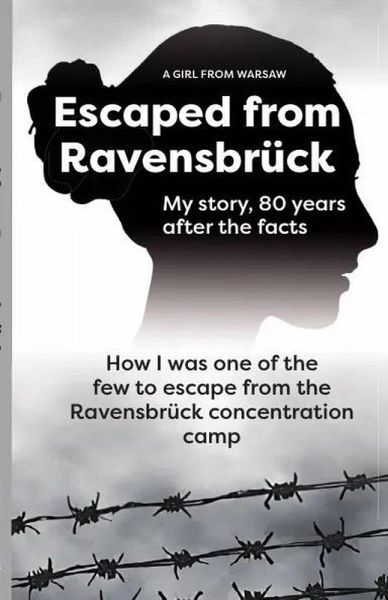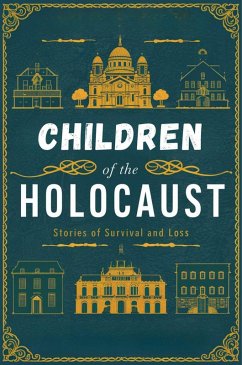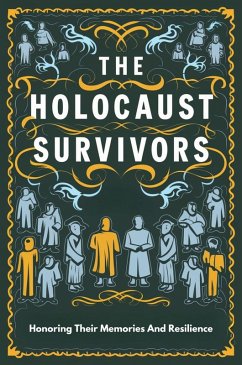
Escaped from Ravensbrück (eBook, ePUB)

PAYBACK Punkte
0 °P sammeln!
The true story of one of the few women who managed to escape from Ravensbruck concentration camp during WWII.Ravensbrück, some 120 kilometres north of Berlin, was until 1945 the only major concentration camp on German soil where mainly women were interned. They were mainly 'political prisoners', i.e. resistance women, although in the beginning there were also sections of Jewish prisoners and Sinti/Roma.Between 1939 and 1945, Ravensbrück held a total of some 132,000 women and children, 20,000 men and 1,000 female minors. They represented more than 40 nationalities."They didn't shoot the women...
The true story of one of the few women who managed to escape from Ravensbruck concentration camp during WWII.
Ravensbrück, some 120 kilometres north of Berlin, was until 1945 the only major concentration camp on German soil where mainly women were interned. They were mainly 'political prisoners', i.e. resistance women, although in the beginning there were also sections of Jewish prisoners and Sinti/Roma.
Between 1939 and 1945, Ravensbrück held a total of some 132,000 women and children, 20,000 men and 1,000 female minors. They represented more than 40 nationalities.
"They didn't shoot the women. We would die of misery, hunger and exhaustion..."
The death rate in Ravensbrück, as in other camps, was shocking. Tens of thousands were murdered or died from disease, starvation or medical experiments.
After the construction of a gas chamber at the end of 1944, the SS gassed between five and six thousand more prisoners; thus Ravensbrück had literally become an extermination camp. Countless women were also transferred to other concentration camps where they died.
It is unknown to this day whether any other women were able to escape from this camp
"Coming to the end of my life, I now tell the story of how I was one of the few to escape from Ravensbrück concentration camp My story, 80 years after the fact."
Ravensbrück, some 120 kilometres north of Berlin, was until 1945 the only major concentration camp on German soil where mainly women were interned. They were mainly 'political prisoners', i.e. resistance women, although in the beginning there were also sections of Jewish prisoners and Sinti/Roma.
Between 1939 and 1945, Ravensbrück held a total of some 132,000 women and children, 20,000 men and 1,000 female minors. They represented more than 40 nationalities.
"They didn't shoot the women. We would die of misery, hunger and exhaustion..."
The death rate in Ravensbrück, as in other camps, was shocking. Tens of thousands were murdered or died from disease, starvation or medical experiments.
After the construction of a gas chamber at the end of 1944, the SS gassed between five and six thousand more prisoners; thus Ravensbrück had literally become an extermination camp. Countless women were also transferred to other concentration camps where they died.
It is unknown to this day whether any other women were able to escape from this camp
"Coming to the end of my life, I now tell the story of how I was one of the few to escape from Ravensbrück concentration camp My story, 80 years after the fact."
Dieser Download kann aus rechtlichen Gründen nur mit Rechnungsadresse in A, B, CY, CZ, D, DK, EW, E, FIN, F, GR, H, IRL, I, LT, L, LR, M, NL, PL, P, R, S, SLO, SK ausgeliefert werden.













